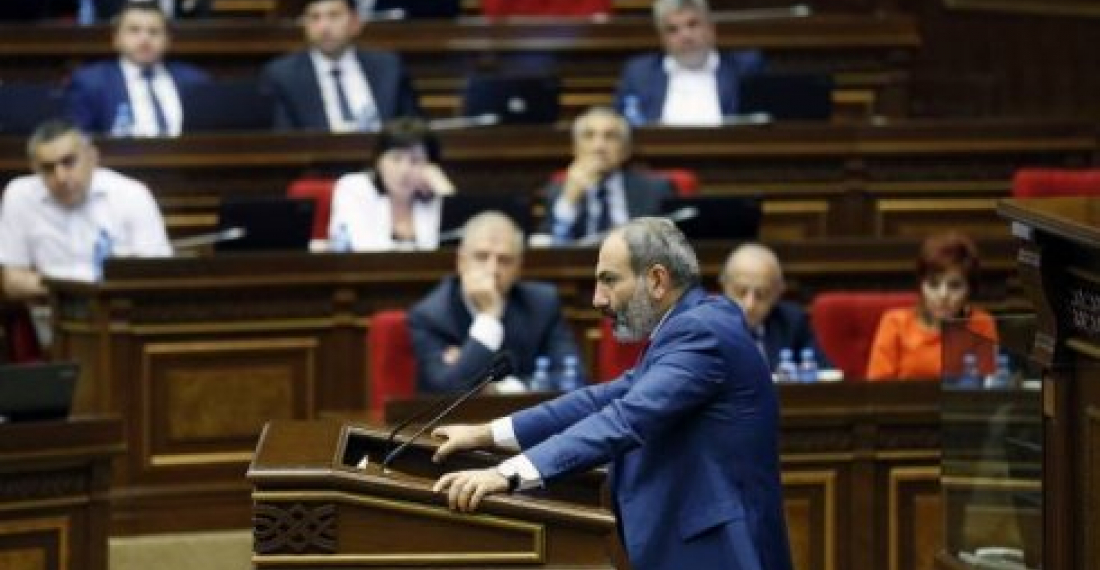The complicated process for triggering early parliamentary elections in Armenia continued in earnest today. The parliament is formally discussing electing a new prime minister after Nikol Pashinyan resigned last week. Pashinyan has been re-nominated for the post, but in a speech in Parliament he asked members not to vote for him. It is only if Parliament twice is unable to elect a prime minister, that parliament is dissolved and elections ensue. Pashinyan in the meantime continues to serve as Acting prime minister.
In his speech Pashinyan commented on whether what had happened in Armenia was a revolution or just a change of power. "It's clear to me that a revolution took place in Armenia, since a real change in the form of society took place, and the essence of that change is that before April 2018 the criminal, economic and political elite, which the whole power belonged to, was a dominant political factor, and the decisive force in Armenia. But after the revolution the dominant political factor, the decisive force, became the people who managed to force that political and economic elite to elect the candidate preferred by them [the people] as Prime Minister of Armenia and recognize the people's power", Pashinyan said.
Nikol Pashinyan added that this topic is urgent in a sense that there are still politicians and analysts who announce and insist that a change of power, rather than a revolution, has just taken place in Armenia. "But the truth is quite the contrary: a revolution took place in Armenia, but a change of power has not taken place yet, in other words, a complete change of power has not taken place. Yes, people's power is established in Armenia, people's government is established in Armenia, but the people and the democratic government still do not have the tool to completely implement their ideas, since the public administration system operates if not completely, but at least with a major part with the old logic and traditions, as well as with the secret hope for return to the old system", he said.
The former ruling party, the Republican party of Armenia, which is still headed by former president Serzh Sargsyan, still has a majority in the parliament. Technically they can nominate someone else as prime minister. But leading personalities within the party's parliamentary group have repeatedly said that they will not nominate anyone as prime minister. This means that it is likely that once the current parliamentary formalities are out of the way the parliament will be dissolved and elections held in December.
source: commonspace.eu with armenpress.am and agencies
photo: Armenian Acting prime Minister Nikol Pashinyanm addressing parliament on 14 October 2018 (picture courtesy of the press service of the government of Armenia)







